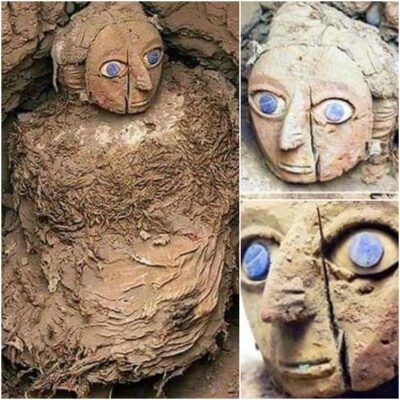The Daily Mail reports that octopuses and humans have evolved from the same primitive worm-like creature, Facivermis yunnanicus, which lived 518 million years ago. This may explain why these eight-limbed creatures are so intelligent.

The primitive organism Facivermis yunnanicus. Photo: Daily Mail
The species Facivermis yunnanicus is the earliest known example of animal evolution to remove body parts that are no longer needed and have minimal intelligence.
The Max Delbruck Center in Berlin (Germany) has discovered that the brain structure of octopuses is similar to that of humans because the marine animal has many gene regulators called microRNAs (miRNAs) in neural tissue, equivalent to the number of amount in vertebrates. The findings suggest that miRNAs, an RNA gene, play a fundamental role in complex brain development.

Illustration
Study co-author Professor Nikolaus Rajewsky said it was evidence that humans and octopuses are related.
Scientists have long studied the intelligence of octopuses, observing how they learn to solve puzzles and open bottles and jars. They can use tools to achieve their goals. They know how to find coconut shells for shelter, stack rocks to protect their burrows, and use tentacles for defense. Recently, they even know how to throw stones at each other.

Illustration: Daily Mail
The study analyzed 18 different tissue samples from the octopus and identified 42 new families of miRNAs – mainly in the brain.
Genes conserved in the evolution of cephalopods have given this animal an advantage and a functional side.
Lead author Dr Grygoriy Zolotarov commented: “This is the third largest expansion of miRNA families in the animal kingdom and the largest outside of vertebrates.” To better understand, Mr. Zolotarov gives an example that oysters are also molluscs but have only 5 new families of miRNAs, while octopuses have up to 90 new families of miRNAs.
Octopuses are unique among invertebrates that have both a central brain and a peripheral nervous system capable of functioning independently. If an octopus has a tentacle cut off, that tentacle can still feel touch and still be able to move.

Illustration
Octopuses are the only species that have developed such complex brain functions because they use their tentacles so purposefully.
They are also very curious and can memorize things. They can recognize people and prefer some people to others. It is believed that they even dream, as they change the color and texture of their skin while they sleep.











